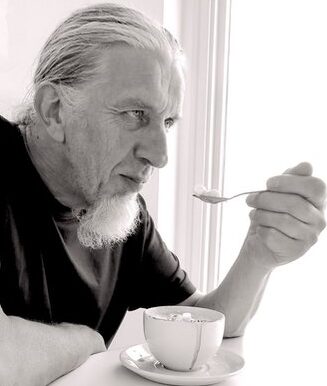With the decidedly uninteresting annual Apple Music Replay I was reminded of an old app that grabbed fragments of music from your iTunes library and created a brief iTunes Signature. This was mine from 2008:
mp3
Kickstarting R Stevie Moore
Only a few more days to raise funds for [wikipop]R. Stevie Moore[/wikipop]’s new recording:
Who’s R. Stevie Moore? Some may ask.
He started as a 7 year old on the [wikipop]Jim Reeves[/wikipop]’ But You Love Me, Daddy in 1959. You remember, it goes…
He subsequently dropped out of university and started a [wikipop]lo-fi music[/wikipop] career in the late 1960s. Since then he says: “I’ve worked harder than anybody to become rich and famous, but I remain poor and anonymous!” :
Find more R. Stevie Moore.
Gregory Isaacs 1951 – 2010
When they get around to inviting me to do [wikipop]Desert Island Discs[/wikipop] I suspect [wikipop]Gregory Isaacs[/wikipop]’ Top Ten will be in there somewhere…
Spotify on the iPhone
The good people at Spotify have announced an app for the iPhone.
Just what Apple plans to do about the imminent launch of Spotify in the US remains to been seen. Some are suggesting that iTunes will become a streaming service too but it has yet to be shown that anyone can make money out of such a system.
Listening to burnt pies and cheesecake
The Economist recently had an article exploring some ideas about why we have music in our lives. Most of which can be (and are in the associated comments) dismissed. It would not take too long to see that it is primarily a homosexual thing with men enjoying music created by men and yet those involved in the exchange are predominantly heterosexual.
[W:John Peel] once likened music to a big pie with the gooey, sticky, sweet stuff in the middle and a harder, crisper, slightly burnt crusty outer edge. While the sweet centre can be pleasant it is the crusty outer edge that is the most satisfying. So I have enjoyed nibbling round and round the edge of the pie and finding that John Duncan was inspired when he found a record by Jacques Lasry in a library – does this remind you of anyone? Music by Lasry, along with a Baschet brother or two was used for the children’s TV programme Picture Box…
alternatively…
John Duncan’s The Keening Towers sounds like cheesecake for [W:Steven Pinker]…
